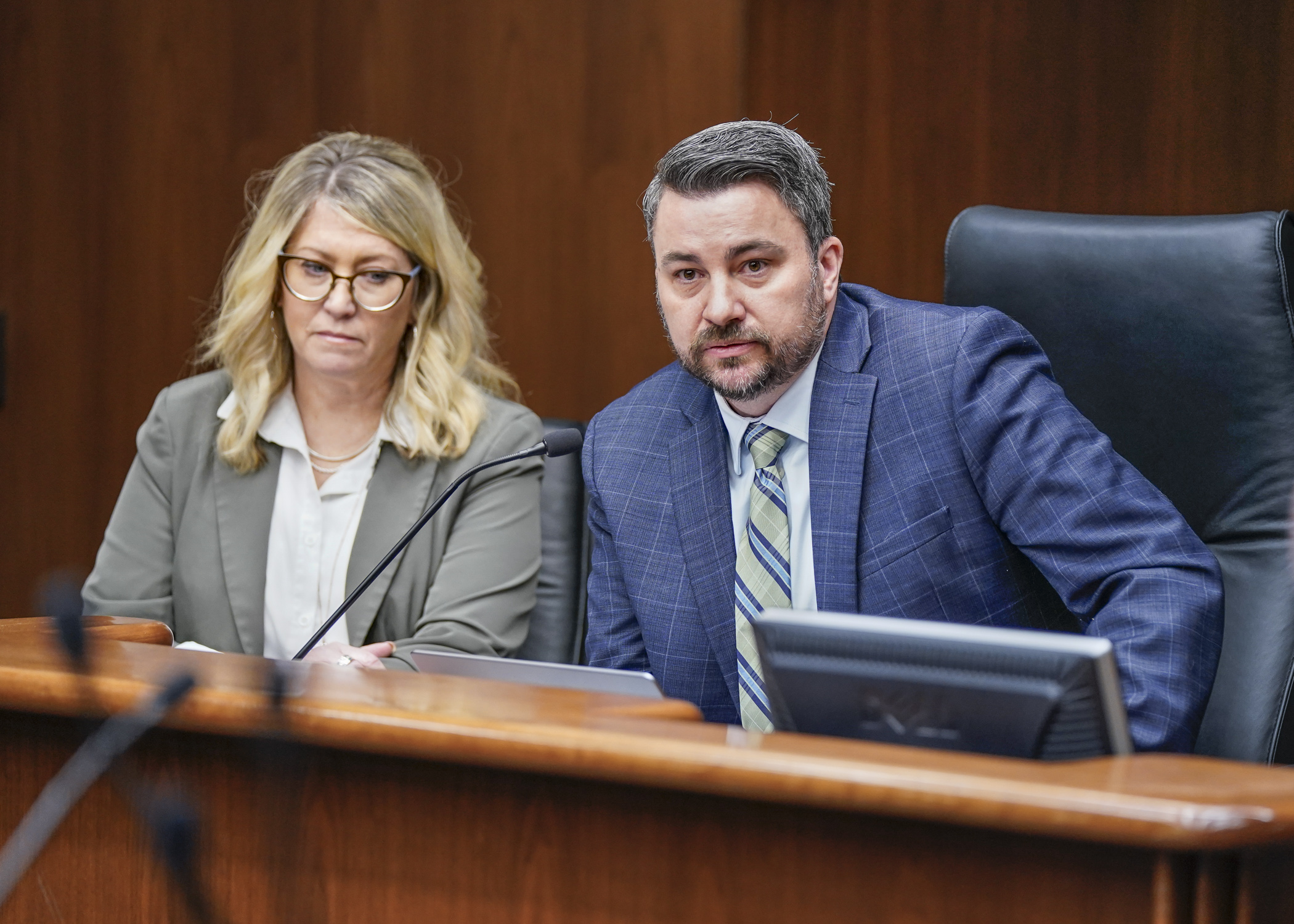House lawmakers hear appeal to significantly hike spending on school safety

Keeping students safe and sound while in school costs money. School resource officers, school security measures, and mental health counseling services are in high demand across the state.
But the funding level for the safe schools revenue program has remained frozen for around 10 years. Rep. Mary Frances Clardy (DFL-Inver Grove Heights) believes now is the time to increase state aid in this critical educational area.
“School districts do not have the funding for necessary training for staff support or specialized mental health services,” she said. Her bill, HF1360, would enable K-12 schools to hire more counselors and improve the security of school facilities.
The House Education Finance Committee laid over the spending proposal, as amended, for possible omnibus bill inclusion on Friday. An exact appropriation request has yet to be determined.
Starting for fiscal year 2024, funding for school districts would triple to $108 per adjusted pupil unit. The state would be responsible for $72, while local levies would cover the remaining $36. A funding minimum would be set at $100,000 per district.
Cooperative units would also see their revenue increased to $44 per pupil. Charter schools would remain ineligible for this funding.
Peter Olson-Skog, superintendent of the West St. Paul-Mendota Heights-Eagan district, endorsed the bill on behalf of the Association of Metropolitan School Districts.
“Safe schools revenue is truly essential for our schools,” he said. “It funds critical roles like therapists, counselors, suicide prevention, and drug abuse prevention.”
He notes that self-harm and suicidal ideation is rampant in his district, especially among female students.
The bill would also expand the eligible uses of safe schools revenue to include cybersecurity measures. Testifiers were heartened by this addition, highlighting the rising costs associated with protecting private student data from hackers.
Rep. Samantha Sencer-Mura (DFL-Mpls) referenced recent violence and cybersecurity attacks at Twin Cities schools as evidence of the urgent need for more funding.
However, she cautioned against assuming mental health issues are more prevalent among females or that schools can solve student violence on their own. She argued that male students are hurting as well but simply less likely to report their pain to adults, and that the Legislature needs to pass gun control to keep guns out of schools.
Rep. Peggy Bennett (R-Albert Lea) questioned why charter schools have historically been excluded from this funding stream. Rep. Cheryl Youakim (DFL-Hopkins) explained that charters don’t have the authority to raise local levies, while Clardy assured the committee that a bipartisan proposal is in the works to find a way to direct money to charter schools for increased student safety.
Related Articles
Search Session Daily
Advanced Search OptionsPriority Dailies
Speaker Emerita Melissa Hortman, husband killed in attack
By HPIS Staff House Speaker Emerita Melissa Hortman (DFL-Brooklyn Park) and her husband, Mark, were fatally shot in their home early Saturday morning.
Gov. Tim Walz announced the news dur...
House Speaker Emerita Melissa Hortman (DFL-Brooklyn Park) and her husband, Mark, were fatally shot in their home early Saturday morning.
Gov. Tim Walz announced the news dur...
Lawmakers deliver budget bills to governor's desk in one-day special session
By Mike Cook About that talk of needing all 21 hours left in a legislative day to complete a special session?
House members were more than up to the challenge Monday. Beginning at 10 a.m...
About that talk of needing all 21 hours left in a legislative day to complete a special session?
House members were more than up to the challenge Monday. Beginning at 10 a.m...